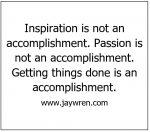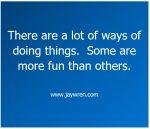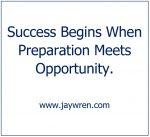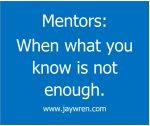Interview Preparation: Are you frustrated with rejection when you have the qualifications for the job? These three steps will help.
Fifty percent of the effort for the best interviews is in the preparation. ~ www.jaywren.com
There are three distinct steps in preparing for an interview.
#1 Interview Preparation: Everything About You
In the first step, review your qualifications. This step will organize your thinking about the things you want the interviewer to know about you.
In writing your resume, you will have begun to work on this step. Ensure that you can discuss from memory the dates and places where you where you have worked. Furthermore, prepare to present your qualifications as accomplishments.
In the United States, applicants for jobs in research, education, and medicine often use a curriculum vitae.
# 2 Interview Preparation: Everything About the Company
The second step in preparing for an interview is to research the company and research the people at the company where you are interviewing.
The Internet is a powerful tool in this step.
Research the directions to location of the interview. Your smartphone can direct you to the location. However, having to follow your smartphone in traffic is stress that you don’t need. Additionally, know where to park before you arrive at your destination.
Furthermore, is this a location where you want to work?
Then, research the details of the company business. What is unique about the company? Why do you want to work for this company? Can you explain to the interviewer the reasons you find the company attractive?
Additionally, learn about the people you will meet. Are these people you want to work with every day? Can you tell the interviewers why you are excited to meet them?
Thoroughly understand the experience and qualifications listed in the job description. If the company does not publish a job description, find job descriptions for similar jobs at other companies.
#3 Interview Preparation: Everything About the Match
Prepare to discuss how your qualifications are a match for the job and for the company that is interviewing you. In this step, merge the preparation you have done on presenting your qualifications with your research on the company.
Furthermore, show how you experience makes you the perfect match with the job requirements.
Based on your research, make a list of the things you don’t know about the job and the company. Prepare questions that you fill in the gaps between what you know and what you need to know.
Do mock presentations. Become confident that you can show that you are the best candidate for the job.
In Conclusion
You are competing against other candidates. Most of them have the qualifications to get the job. Separate yourself from the competition by using the steps in this article to prepare for the interview.





